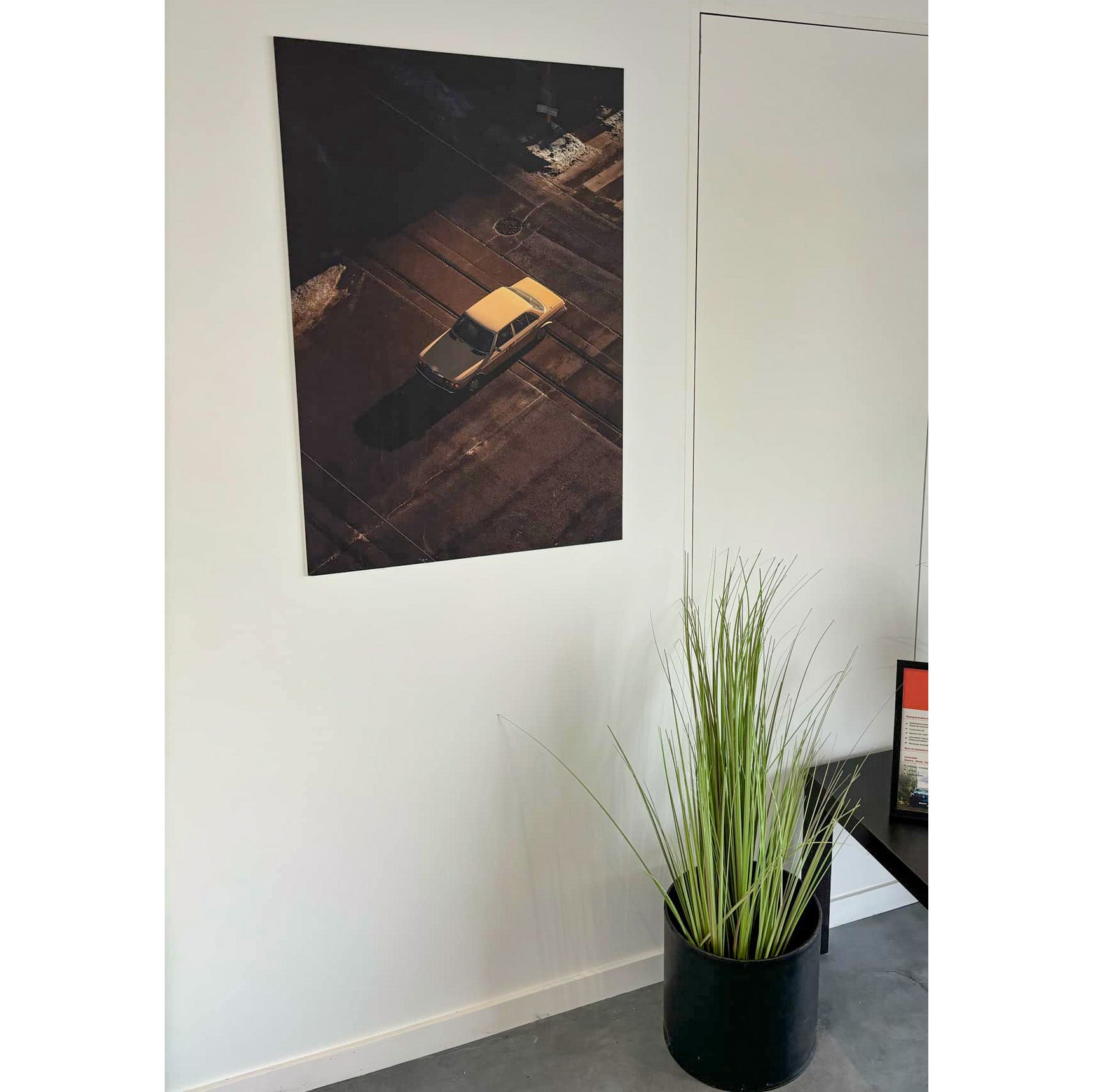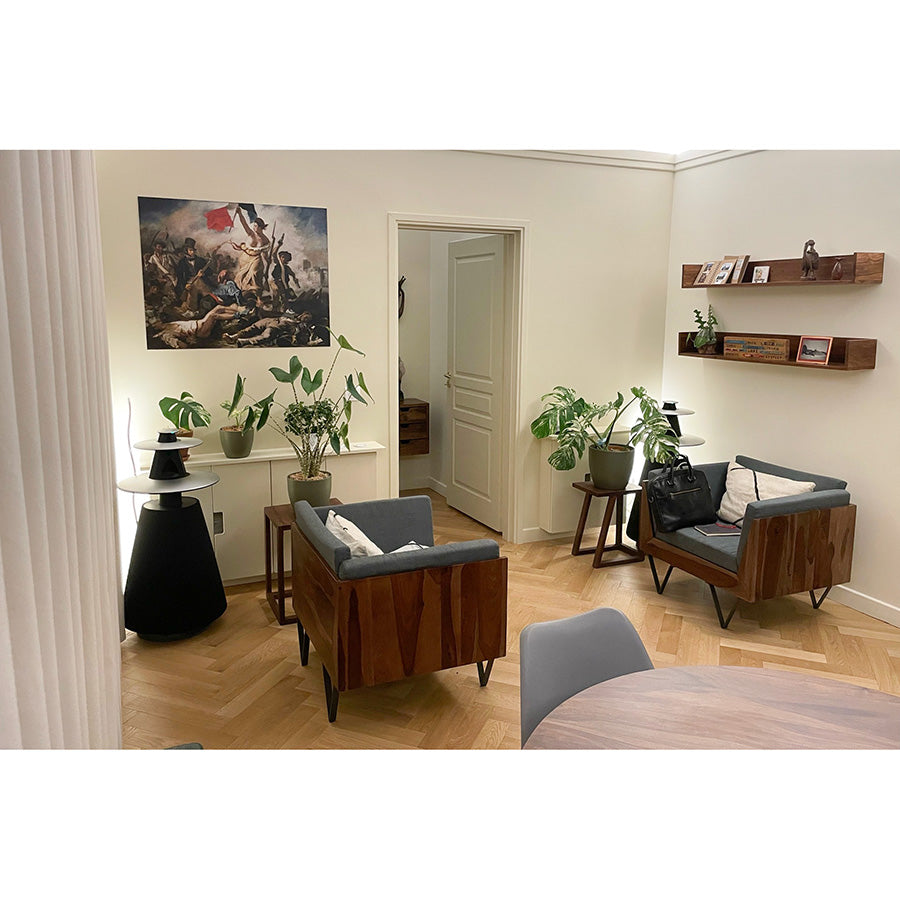Art print | Couple at a table Autoportrait with Maschka - Otto Mueller


View from behind

Frame (optional)
In the vast universe of art, some works manage to capture the very essence of humanity and interpersonal relationships. "Couple at a Table Self-Portrait with Maschka" by Otto Mueller is one of those pieces that, through its depth and sensitivity, invites the viewer to delve into a world of nuanced emotions. This artwork, which combines intimacy and introspection, offers a poignant glimpse into the dynamic between the artist and their model, while revealing the subtleties of human connection. The composition, both simple and complex, evokes an atmosphere where time seems suspended, allowing each person to question the very nature of relationships.
Style and uniqueness of the work
Otto Mueller's style is undeniably marked by expressionism, but it is distinguished by a unique approach that blends a vibrant color palette with stylized forms. In "Couple at a Table Self-Portrait with Maschka," the figures are depicted with a certain monumentality, almost sculptural, which enhances their presence. The softness of the contours contrasts with the strength of the emotions emanating from the canvas. The faces, both serene and tinged with palpable melancholy, speak to us of shared intimacy, of a moment of complicity frozen in time. The table, a central element of the composition, symbolizes not only a meeting place but also the space where emotional bonds are woven. Every detail, from the choice of colors to the arrangement of the characters, testifies to Mueller's talent in capturing the complexity of human relationships.
The artist and his influence
Otto Mueller, an emblematic figure of the German expressionist movement, knew how to mark his era with his innovative approach to the representation of man and nature. Born in 1874, he was influenced by various artistic currents, ranging from symbolism to folk art. His work is set in a context where art seeks to express deep emotions and inner truths. Mueller often explored themes of solitude, love, and the quest for identity, which is reflected in "Couple at a Table Self-Portrait with Maschka."

Matte finish

View from behind

Frame (optional)
In the vast universe of art, some works manage to capture the very essence of humanity and interpersonal relationships. "Couple at a Table Self-Portrait with Maschka" by Otto Mueller is one of those pieces that, through its depth and sensitivity, invites the viewer to delve into a world of nuanced emotions. This artwork, which combines intimacy and introspection, offers a poignant glimpse into the dynamic between the artist and their model, while revealing the subtleties of human connection. The composition, both simple and complex, evokes an atmosphere where time seems suspended, allowing each person to question the very nature of relationships.
Style and uniqueness of the work
Otto Mueller's style is undeniably marked by expressionism, but it is distinguished by a unique approach that blends a vibrant color palette with stylized forms. In "Couple at a Table Self-Portrait with Maschka," the figures are depicted with a certain monumentality, almost sculptural, which enhances their presence. The softness of the contours contrasts with the strength of the emotions emanating from the canvas. The faces, both serene and tinged with palpable melancholy, speak to us of shared intimacy, of a moment of complicity frozen in time. The table, a central element of the composition, symbolizes not only a meeting place but also the space where emotional bonds are woven. Every detail, from the choice of colors to the arrangement of the characters, testifies to Mueller's talent in capturing the complexity of human relationships.
The artist and his influence
Otto Mueller, an emblematic figure of the German expressionist movement, knew how to mark his era with his innovative approach to the representation of man and nature. Born in 1874, he was influenced by various artistic currents, ranging from symbolism to folk art. His work is set in a context where art seeks to express deep emotions and inner truths. Mueller often explored themes of solitude, love, and the quest for identity, which is reflected in "Couple at a Table Self-Portrait with Maschka."









